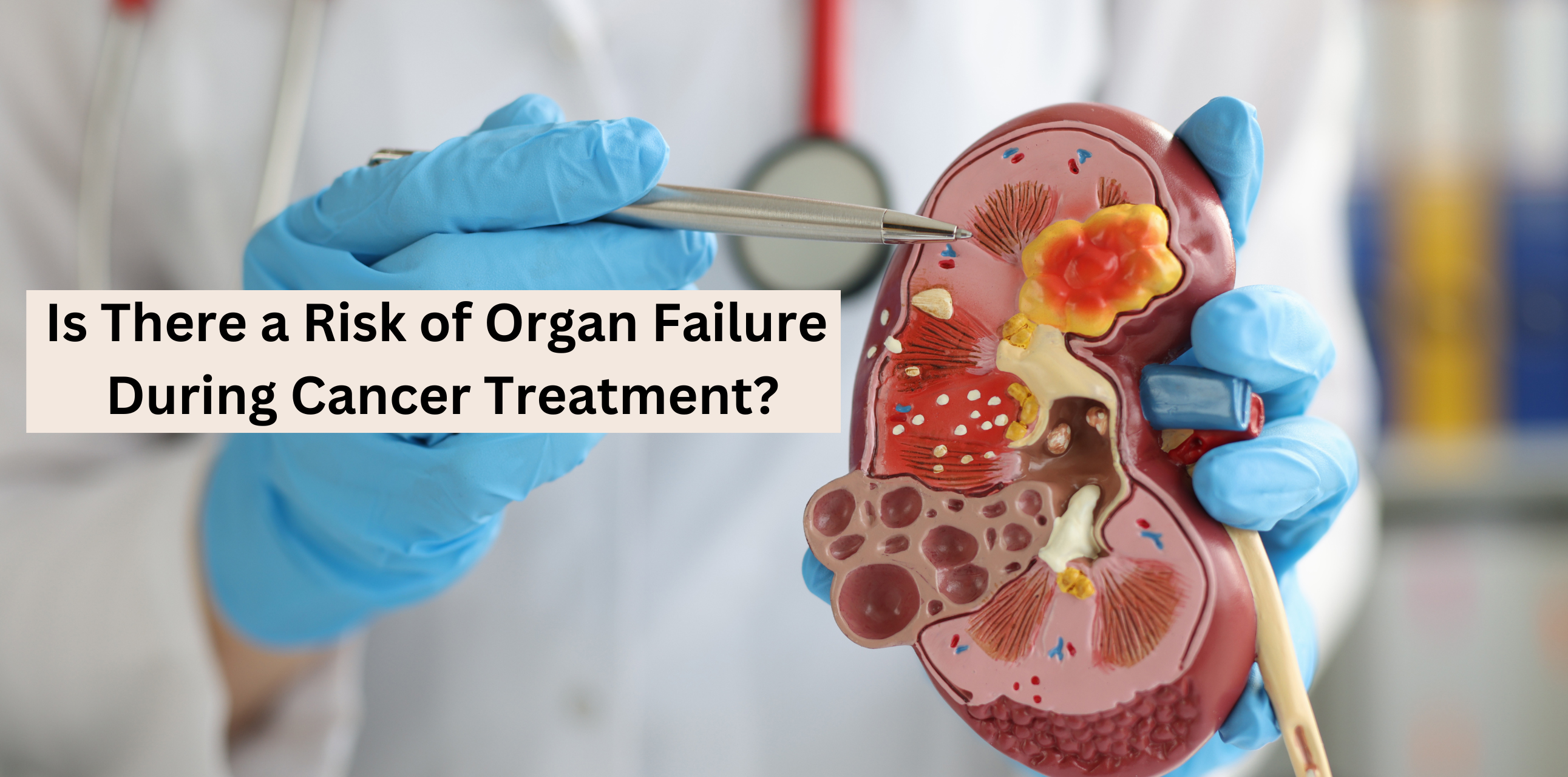Dr Manish Singhal - The best Cancer Specialist in Delhi
Is There a Risk of Organ Failure During Cancer Treatment?

Cancer treatment can save lives, but it is frequently associated with adverse reactions, some of which are extreme. Organ failure represents one of the possible hazards connected with cancer treatment. Patients and carers have to first recognise this risk to ensure the most favourable potential outcomes. Patient safety remains our first concern at Cancer Consult India (CCI), so we put great effort into reducing such hazards. Whether your search is for individualised treatment or a qualified cancer doctor in Noida, CCI is here to support you all along.
How Cancer Treatment Affects Organs?
Chemotherapy, and radiation, including targeted therapies, are cancer treatments that attempt to destroy cancer cells, however, they can also harm healthy tissues and functions. The form of cancer, the course of treatment, as well as the overall state of the patient all influence the probability of organ failure.
1. Chemotherapy and Organ Impact
Chemotherapy destroys cancer cells by using strong medications. These medications can occasionally, however, damage the kidneys, liver, or heart. For instance, certain chemotherapy medications might harm kidneys or induce liver inflammation—especially in a patient with pre-existing illnesses.
2. Radiation Therapy and Organ Damage
Radiation treatment tackles cancer cells in a particular area, although neighbouring organs may be harmed. For lung or breast cancer, radiation might inadvertently affect the lungs or heart and cause complications. At CCI, we employ cutting-edge technologies to provide exact treatments, therefore lowering potential hazards to vital organs. These contemporary approaches implemented by CCI help patients undergoing breast cancer treatment in Noida.
3. Targeted Therapies and Immunotherapies
Targeted therapies along with immunotherapies are emerging treatments that aim to target particular cancer cells or strengthen the body's immune response. Although they are usually less harmful than conventional chemotherapy, adverse problems including liver or kidney malfunction might sometimes occur.
4. Surgery-Related Risks
Sometimes, especially if the cancerous condition is close to important organs, a procedure to surgically remove tumours causes difficulties impacting surrounding organs. This risk emphasises the need for qualified surgeons as well as a well-coordinated treatment team that CCI offers.
Factors That Increase the Risk of Organ Failure
Several variables can increase the probability of organ failure following cancer treatment, such as:
Pre-existing conditions: Patients especially vulnerable include those with high blood pressure, diabetes, or chronic kidney disease.
Age: Older individuals' weakened organ performance might increase their vulnerability.
Combination therapies: Concurrent use of multiple therapies can raise toxicity rates.
Delayed diagnosis or treatment: Advanced-stage tumours could qualify for more severe treatment, which would stress organs.
How CCI Reduces the Risk of Organ Failure?
Patient safety is the first concern at CCI. Experienced oncologist in Noida among our team of competent professionals uses a thorough strategy to reduce threats. Our approach is as follows:
Personalized Treatment Plans
Every patient is different, hence their treatment approach. At CCI, we do extensive evaluations to customise treatments depending on the medical background, form of cancer, as well as overall condition of health. This customised strategy lowers potential risks.
Advanced Monitoring Techniques
We track patients attentively for early indicators of organ stress during treatment. Periodic blood tests, radiology scans, and various other diagnostic technologies help us to quickly identify and resolve problems.
Use of Modern Technologies
Our advanced instruments guarantee exact treatments, therefore lowering the possibility of injury to adjacent healthy tissues. Patients undergoing treatment for lung cancer in Noida, benefit from modern radiation methods that reduce heart as well as lung complications.
Supportive Care
Supportive treatment, including hydration therapy as well as liver or kidney protection medications, is critical for avoiding complications. At CCI, we provide our patients with thorough treatment including their mental as well as physical well-being.
Signs of Organ Stress to Watch For
Early indicators of organ stress throughout treatment should be known to patients and carers; these include:
Fatigue and tiredness
Hands, feet, or the face swelling
Unaccounted weight loss or increase
coughing frequently or having trouble breathing
Yellowing of the eyes or skin (a liver-related indication)
Variations in urine output or colour
Contact your physician quickly if any of the above signs appear. Our team of experts at CCI including a highly experienced oncologist in Delhi is constantly ready to answer questions and give quick treatment.
Steps Patients Can Take to Reduce Risk
Patients can take steps to lower the organ failure risk by:
Following medical advice: Following recommended treatments and medication is truly vital.
Maintaining a healthy lifestyle: Following a balanced diet, drinking enough water, and working out as advised help to promote organ function.
Reporting side effects early: Inform your physician about any strange symptoms to help avoid complications.
Avoiding harmful substances: Reducing alcohol intake and avoiding smoking will help the lungs and liver to be less stressed.
Conclusion
While cancer treatments have some hazards, such as organ failure, breakthroughs in healthcare technology and personalised care are greatly improving results. Our objective at CCI is to provide sensible and efficient cancer treatment. CCI is ready to offer world-class assistance whether your need is for expert advice from a qualified oncologist or a trustworthy cancer specialist.
Contact us right now if you or your loved one is dealing with cancer. Working together, we will pursue recovery with modern treatment, compassion, and trust.




